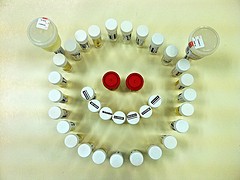
A new analysis has found that a simple urine test can routinely identify human papillomavirus (HPV), which is associated with cervical cancer risk.
The study, according to lead researcher Dr. Neha Pathak, reveals that testing urine for HPV is accurate enough that it matches testing samples extracted from the cervix for HPV. Dr. Pathak is a research fellow and resident in obstetrics and gynecology at Queen Mary University in London, England.
The test is convenient enough that it can be taken at home but requires the professional interpretation of a medical professional, said Dr. Pathak.
She and fellow researchers reviewed 16 published articles tackling 14 studies that investigated on the HPV urine test.
Dr. Pathak added that although the urine test is currently limited in terms of availability and is not included in any screening guidelines just yet, it has tremendous potential and more research is necessary. Currently, women only receive this test in the confines of a research context.
Background information of the study notes that HPV, which is considered as one of the most common sexually transmitted infections, affects up to 80 percent of sexually active women at some point in their lives.
Infection often diminishes and clears up on its own, yet an estimate of 20 percent of women do experience persistent infections. This may be hazardous, as specific HPV strains have been correlated with cervical cancer development.
The American Cancer Society states that this year will see around 12,300 new cases of cervical cancer diagnosis, and that 4,000 women will die of the disease.
Fred Wyand, spokesman for the American Sexual Health Association and the National Cervical Cancer Coalition, is hopeful and sees a bright future for the test. "Were such a test ever approved for clinical use, it would be a unique addition to the options health care providers currently have to screen women for cervical cancer. The uniqueness of the urine specimen would be in comparison to current offerings of screening tests that involve taking a physical sample of cells from the cervix," he added.

